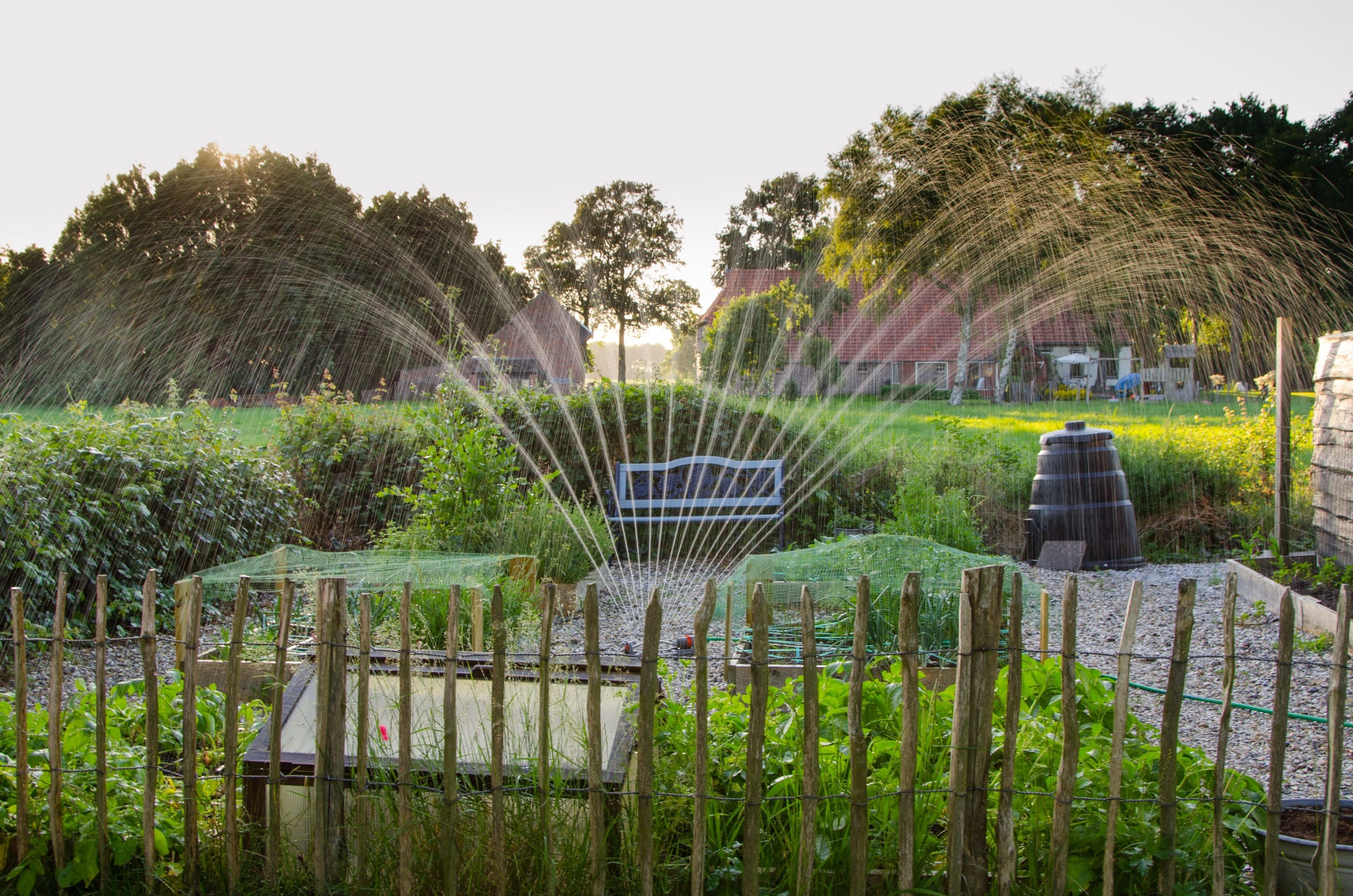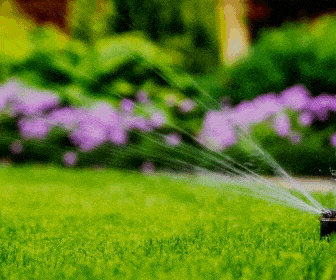A landscape needs three things to thrive: ample sunlight, fertile soil, and sufficient water to keep turfgrass and garden plants alive. For many homeowners, the water is the hardest thing to manage. Hauling hoses and sprinklers around the yard and garden beds is a chore, especially in oppressive mid-summer heat. That’s when an in-ground irrigation system is the most appealing option.
“The biggest advantage, if you have a system set up correctly and a good watering schedule, is that the system is taking care of watering needs for you,” says Tim Nebel, Garden of Babylon’s landscape production manager. It also helps save money, he says, when systems can be programmed to provide water as needed, and adjusted to meet different needs throughout the seasons.
Parts of an irrigation system
An irrigation system is connected to the city water supply. Components include a backflow preventer, to prevent water from the landscape from potentially mixing with the home’s water supply; a controller; a main water line of PVC piping, and lateral PVC lines connected to irrigation heads. Nebel describes three types of nozzles with different spraying functions:
*Rotors, for turf areas. They spray the farthest distance, but because of the trajectory they use the least amount of water. Typically, the rotor zones are set to run for a longer period of time.
*Fixed spray heads, typically to cover small lawn areas or garden beds. These put out quite a bit more water per minute, so they run for less time than a rotor. “The coolest nozzles in the fixed spray heads are MP rotators, high-efficiency nozzles,” Nebel says. “The way they throw the water is much more efficient that the traditional VAN – variable adjustment nozzle – type.”
*Drip irrigation, for garden beds. “This is tubing that typically lines the beds over the root balls of all the plants, on top of the soil and underneath the mulch.” The small, spaced perforations put out very little water and can run much longer, he explained. “The advantage of drip over overhead watering for a garden bed is that drip irrigation, if it’s installed correctly, is more targeted to the plants’ root zones.”
Smart controllers
Just about everything is “Smart” now, it seems, even your irrigation system. “Smart controllers run through wi-fi through an app on the phone,” Nebel explains. “You can run it from anywhere through remote control.”
An advantage of setting up a regular schedule on any system is that it’s worry-free, Nebel says. “You set it up and don’t have to think about it except to make sure it’s in auto-run position.” Smart systems (such as Hunter Industries’ system Hydrawise) can adjust watering based on local weather data – if it’s raining when the system is programmed to run, it doesn’t turn itself on.
Irrigation system maintenance
System issues do arise from time to time, therefore it’s important to have a regular maintenance schedule, Nebel says.
“It’s essential in Tennessee, or in places with cold winters, to winterize the system.” As winter approaches, technicians use an air compressor to blow out all the water and drain water out of the backflow. “If you do not winterize, more than likely the pipes and backflow will crack due to freezing and thawing, and will then need to be repaired for the system to run properly.”
At startup time in the spring, and as summer heat kicks in, it’s important to revisit the settings of the run-time controller; and again in the fall, to readjust to lower water needs. “Coverage needs can change over time,” Nebel says. “This helps save water and lower costs, and it protects your investment.”
Gardens of Babylon installs and maintains irrigation systems, and offers different maintenance package levels for landscapes of all sizes. Click here to learn more about the systems and book a consultation with the Landscape Design team.







0 Comments